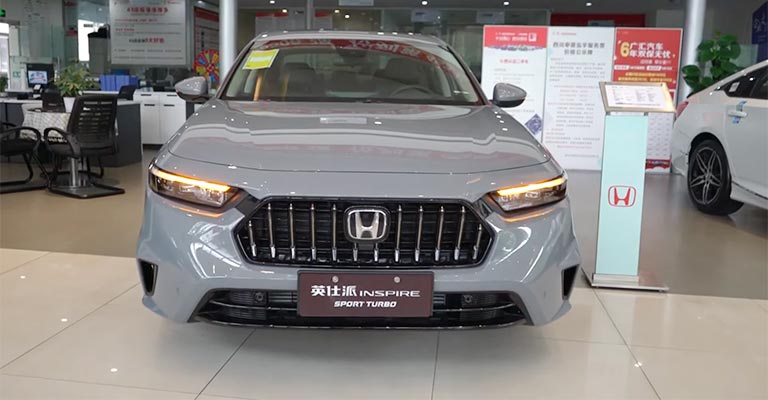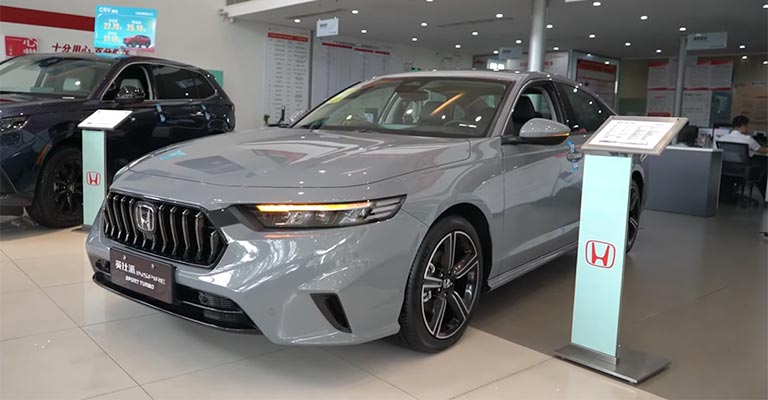It’s only been one and a half years since Honda and GM Motors confirmed their collaboration. However, a few days ago, the duo announced that they would no longer work together to build the compact EV crossovers.
Perhaps, it isn’t making any sense to you, right? Not for us too! It directly came from the Honda CEO, as per Bloomberg. The affordable company EVs, that were scheduled for 2027 came to a halt due to some alterations in business development.
Although not so much information has been revealed till now, we believe, it’s the rising expense of project materials and without allowance for the proper driving range, to be the reason behind. The two prestigious companies have decided to search for solutions separately instead of paving one way together, as said by Mibe.

Details below,
In April 2022, Honda partnered with General Motors (GM), sharing the same goal to develop a series of budget-friendly electric vehicles. The plan was to build millions of cars on a jew joint venture platform, starting in 2027.
The partnership set some goals such as building EVs with reduced battery costs. They also wanted to offer EVs at a reasonable price to beat the competition of the rival market. Because that’s real! Not everybody in the 21st century is capable of buying a Tesla or BYD Co.
The Plans Were,
- Both Honda and GM agreed on the Ultium-based Honda Prologue and Acura ZDX SUVs.
- Last year, they agreed to build more affordable and compact EV crossovers that would use the Ultium batteries from GM.
- A new and shared platform was proposed to be created in 2027 where the first few models would have a debut. The launch was specifically scheduled for 2027.
- In addition to this, some models were also scheduled for the global market. And that includes South America and China.
- The applications of GM’s Ultium battery are found in the Chevy Equinox EV, the GMC Hummer EV, and electric BrightDrop vans.
- It is believed that the new vehicles would have a price even lower than the $30,000 base-spec Equinox EV.
- It was also stated that Honda + GM was also exploring solid-state battering and using premium materials like lithium-metal and silicon.
- The primary goal was to improve vehicle quality and offer a boost in production speed.
The joined force wanted to share the development costs and make electric vehicles available to general people at friendly prices. That would seemingly increase sales and beat the competition that’s dominant in the EV industry.
This is not the first time. Before this, Honda joined the battery module development efforts of GM in 2018. According to Rick Schostek, executive vice president of American Honda Motor Co., Inc.
“This collaboration will put together the strength of both companies, while combined scale and manufacturing efficiencies will ultimately provide greater value to customers,”
So, What Led to This?
The plan has been ditched now! It was only a few weeks ago, that the Japanese automaker confirmed it on October 25, 2023. They would no longer work together to build the EVs at an affordable range.
Honda also clarified that it’s not the end. Both automobile makers would continue to develop and produce an individual range of affordable EVs, just not together. The Japanese Marque also added,
“After conducting some research and analyses, both parties decided to end the development,”
We suppose the R&D wasn’t as hopeful as they assumed it to be. The overall price of the entire project and the continuous supplements essential to secure the project, in the long run, led to the cancellation of a project of such a large scale.
Take a look at the magnitude of the project. It’s huge and set for the long road ahead, starting from 2027. Let’s not forget the current-day price hike that’s manipulating the world economy now.
That part is from Honda. On the contrary, General Motors Company (GM) assumed the United Auto Workers strike was the culprit behind the fall. They revealed this week that, due to the strike, they are not sure anymore that they would reach an original $14 billion forecast for profits within 2023.
The strike can be a big fuss! Another American automotive giant, at its Orion Assembly plant in Michigan, also postponed the development and production of some Chevrolet Silverado EV and GMC Sierra EV models due to the strike. It is a real issue to meet any large-scale production of battery-fueled vehicles at this time.
Will This Affect Honda Prologue and Other EVs Scheduled for 2024?

It is important to note that, this separation between Honda and GM won’t have any impact on Honda Prologue and Acura ZDX, developed by Honda. Both of the 2024 EVs share close similarities with the Chevy Blazer EV and Cadillac Lyriq.
The two models also utilize GM’s Ultium battery tech, details here. Honda is using the GM’s high-quality batteries for the Prologue and ZDX, and it will remain that way. We expect both the Prologue and ZDX will begin early delivery in 2024.
We Still Hope That,
Even though the two companies are looking for solutions separately, we still hope to see some crossover electric vehicles below $30K shortly. At this point, it doesn’t matter whether the elevation comes from Honda or GM.
We believe the two companies can achieve so much better when together. Although the current correlation didn’t work out, it has been a disappointment for many car geeks. However, we believe, in the near future, the two companies will work together again to earn the ends of the tail and innovate something revolutionary together.




